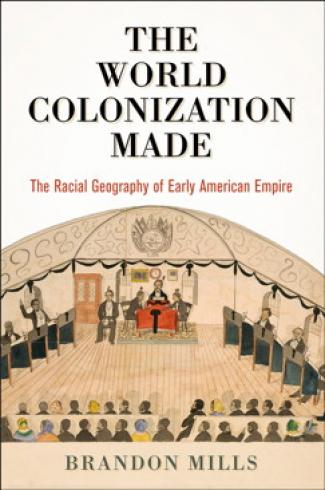This past October Dr. Brandon Mills celebrated the publication of his book The World Colonization Made: The Racial Geography of Early American Empire. Mills's first monograph presents a new perspective on the colonization movement in the United States. His work expands the standard view of colonization--the proposal to send freed slaves to Africa--by exploring its influence on the literal and perceived boundaries of U.S. imperialism. Mills explains, "I hope to show how the colonization movement helped shape the United States' racialized conception of itself as both a settler empire in North America and an overseas global empire." Mills's global perspective challenges the popular notion that the colonization movement was focused primarily on domestic questions of slavery and anti-slavery.
Mills began researching this topic in graduate school, exploring the colonization movement’s different applications and meanings throughout the 19th and early-20th centuries. What interested him, however, were the differences between how freed African Americans, white slave owners, and anti-slavery advocates each viewed this movement over time. Mills also focused on the use of the word “colonization” within the “American Colonization Society,” a group that worked to assist African Americans in emigrating to the Western coast of Africa. Scholars have seldom discussed the choice of this word within the context of U.S. imperialism.
These questions carried over into Mills’s research for his dissertation at the University of Illinois, leading him to amass a great volume of primary sources that at times felt excessive. Mills, however, credits this process in exposing him to a wider perspective on his topic, allowing him to engage in the more-focused research that was required for his book. “It was not always the most efficient process,” he remarks, “but I do not think the book would be what it is today without the searching and circuitous route of my research.”
Mills acknowledges the guidance provided by his dissertation co-advisors Kristin Hoganson and David Roediger, as well as from colleagues like Jason Opan and Emile Conroy-Krutz. Mills earned financial grants and presentation opportunities from by the Society for Historians of American Foreign Relations, Society for Historians of the Early American Republic, and the McNeil Center for Early American History. “The steadfast support from everyone in the CU Denver History Department,” Mills concludes, “was essential to seeing this book through to completion.”
